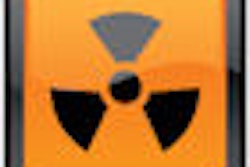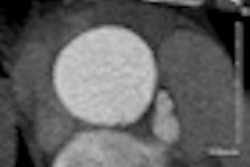Patients at Cabell Huntington Hospital in West Virginia have received exposure to radiation above recommended levels during CT brain perfusion scans, according to a hospital statement released March 3.
With the disclosure, the 313-bed regional hospital joins a group of healthcare facilities across the country that have been found by the U.S. Food and Drug Administration (FDA) to be overradiating patients during this procedure, according to the FDA and an article in the New York Times.
The hospital performed an internal review of CT angiography procedures conducted between October 2009 and November 2010, and found that a group of patients had been overexposed to radiation.
"This should not have happened and we are taking all necessary steps to prevent it from ever happening again," the hospital's statement said. "Each patient we believe was affected has been personally contacted and has been sent a letter so that we can be certain they are fully informed and to recommend that they discuss this matter with their primary care physicians."
Although patients may have received higher doses than recommended, they were "still within the range of normal for complex imaging procedures," the hospital said.
The FDA has been publishing public warnings about overradiation during CT brain perfusion procedures since 2009, yet Cabell Huntington patients continued to receive overdoses of radiation, according to the Times. That year, the agency cautioned healthcare facilities about overexposure during these scans, recommending that they review radiation dose protocols and check radiation levels on the scanner's display before taking images.
By October 2010, the FDA was aware of 385 patients from six hospitals across the country who had been overexposed during CT angiography, according to an FDA report posted in November. The devices involved were manufactured by GE Healthcare and Toshiba America Medical Systems; inspections of these companies found no violations of FDA laws and regulations, the agency said.
"The FDA evaluated the manufacturers' specifications for multislice CT scanners and found that when these scanners were used according to the manufacturers' specifications, they did not result in overexposure," the FDA's report said. "The FDA also reviewed literature that supports that the manufacturer-defined protocols do provide reasonable and appropriate image quality and dose. Further, the FDA found no evidence that the manufacturers were involved in modifying any of the hospitals' scanning protocols so as to cause the overexposures."
In December 2010, GE filed a report with the FDA about a radiation dose delivered at Cabell Huntington in June that was 5.6 times higher than its device guidelines, the Times said. According to GE, the error resulted from a technician manually increasing dose, rather than a device malfunction. The company filed a second report in January of this year about an event that happened at Cabell Huntington in March 2010.
Cabell Huntington Hospital is evaluating its practices to look for additional ways to protect its patients from overradiation, according to the hospital statement.
"We have been working with the manufacturer of our CT angiography equipment to ensure it is safe and in proper working order," the statement said. "Additionally, our CT staff members have each received additional training to help prevent the possibility of any future occurrences."





















